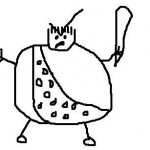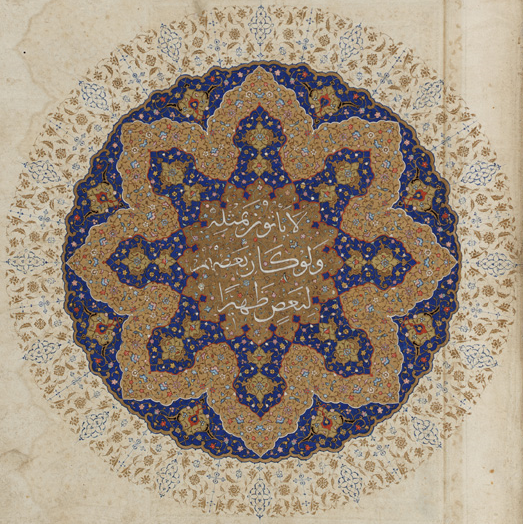I have been asked to write a response to S.E. Smith at Tiger Beatdown after both of our articles appeared on R.H. Reality Check. What follows is that response.

My previous post titled Disability, Prenatal Testing and the Case for a Moral, Compassionate Abortion began with a long disclaimer in which I wrote, If you come away from this article thinking that I advocate genocide of a disabled population or the coercion of women pregnant with disabled fetuses into abortion, that I hate disabled people or think that Down syndrome people don’t deserve to live, you have failed to understand my point. It apparently was not enough to prevent S.E. Smith from drawing just those conclusions. She writes, “I’m still seething over this post… in which I am essentially informed that my life has so little value, is so not worth living, that I was such a burden on my father to raise, that I should have been aborted.” This is curious, considering my entire post was premised on the argument that fetuses are not people, that disabled fetuses are not disabled people, and that aborting a fetus based on disability is not the same as wishing that disabled people were dead.
This is the starting point from which Smith deliberately misunderstands and mischaracterizes my argument. Here are the things my post was not:
- A manifesto calling for women to abort all disabled fetuses in the attempt to eradicate disabled populations.
- A defense for the abortion of disabled fetuses that implies other motives for abortion are less acceptable, or that disability is a “special case.”
- An attempt to convince a pregnant woman to abort a fetus based on disability if she did not already want to do so.
- A judgment on the worth of lives already being lived.
Here is what my post actually was:
A response to a Her.meneutics article that demonized women for choosing abortion based on disability. If my post is taken out of that context and made to stand for something else (as a rallying cry for all women to abort all disabled fetuses, for example) its meaning is fundamentally altered into something that I do not support and do not argue for.
I support an individual woman’s right to abort her pregnancy for any reason whatsoever.
I support a woman’s right to abort based on the sex of the fetus, but that doesn’t mean I advocate a society-wide program of sex-selective abortion.
I support a woman’s right to abort based on whether or not she thinks she can afford a child, but that doesn’t mean I advocate sterilizing poor people.
I support a woman’s right to abort a fetus based on the fact that it is not disabled, too. Indeed, one of the commenters on my original post pointed out that she would not be as comfortable raising a neurotypical child as she would an autistic one, given that she was autistic. I support her choice, too. I believe every woman has the right to end a pregnancy if she feels unqualified or unwilling to parent the child that would result.
My post defended individual women for their individual choices and tried to provide a moral logic to answer the logic of the anti-choice article that used disability to shame women out of abortion. Nothing more. Attempts to make it more than that distort its meaning into something unrecognizable.
Smith appears to think that I’m against her when she writes the following: “What I am pushing for is disability as a value-neutral status that individual disabled people, not the people around them, get to make of what they will. Maybe that means celebrating your amazing body. Maybe that means corrective surgery. Maybe that means something else entirely.” The trouble is, I fully agree with her on this point. I do not want to make decisions about the bodies of the people around me, and I do not want others controlling my body or my relationship with it, whether or not disability is part of the equation.
If I were to distort Smith’s arguments the way she has distorted mine, the following passage would have coercive overtones:
“Statements like ‘I want a cure for autism‘ or ‘I want a cure for Down Syndrome’ are eliminationist in nature. These statements indicate that you want an entire population to disappear. And, newsflash, attitudes like these are why parents who torture, abuse, and kill their disabled children are often not held accountable.”
In other words, women who abort disabled fetuses are trying to exterminate disabled populations as well, right? Because they are deliberately reducing the number of disabled children who are being born! Because their attitudes are discriminatory and they believe disabled babies don’t deserve to live! Women who get abortions based on disability are monsters!
Except I don’t think Smith believes that any more than I do.
I don’t believe that searching for a cure for disabling conditions is at all equivalent to the genocide of disabled populations. I do not believe that parents are ever justified in murdering their children. Just as I do not think that Smith believes in shaming women for aborting disabled fetuses, I would like to see her extend the same courtesy of realizing that I am not attempting to justify parents who murder their disabled children.
Smith cherry-picks my use of the word “wisdom” – note that I applied it as well to poverty and my own experience, not solely to disabled people – to make it look as though I am fetishizing others’ experiences. Nowhere did I say that wisdom was particular to disabled people. All human beings acquire wisdom through their experiences. The experience of being marginalized in society, whether through discrimination based on race, sex, income, disability, or sexual orientation, does provide particular insights that more privileged people tend not to have access to. That doesn’t mean I think there’s a spiritual Wisdom butterfly that settles on the shoulders of poor disabled folks to compensate for their poor treatment by society any more than I believe poor people are happier because they know What Really Matters in the style of Charles Dickens.
Smith writes that I am “pushing very hard on the argument that abortion for disability is almost necessary if you want to make the correct ethical choice for a pregnancy.” But it isn’t. I repeatedly stated that what I was presenting was only one possible side of a personal issue. If I worded it strongly, it was because the anti-choice condemnation of women who abort disabled fetuses is even louder. I do not believe that any condition (disability, sex, poverty, timing, manner of conception) makes abortion a categorical imperative (something all women must ethically do), just as I do not believe the presence of any condition makes not aborting a categorical imperative. I do not think any woman should be shamed for her choice to abort or not to abort. I support, just as strongly, a woman who chooses abortion for a neurotypical fetus because she feels better prepared to parent an autistic or Down syndrome child.
Finally, Smith responds to my “thought experiment” comparing Down syndrome to FAS with the comment: “How about we not reduce the lives of people with disabilities to thought experiments?” That’s a nice soundbyte, but that’s not what the experiment was about. It was about the social discourse surrounding disability and the policing of pregnant women. I do not believe that “the lives of people with disabilities” applies to fetuses who have not yet begun to have lives. The basis of my post is the belief that abortion does not kill a person, that choosing to continue a pregnancy creates a person. That’s a feature of the argument, not a bug. It is at the point of birth that I believe fetuses become infants and acquire the rights of personhood. That counts whether or not they are disabled. It counts no matter how their parents feel about them. That’s why I think it’s important to safeguard the choices women make before birth, to give the children that are born the best possible chance of being accepted, wanted, respected and loved.















